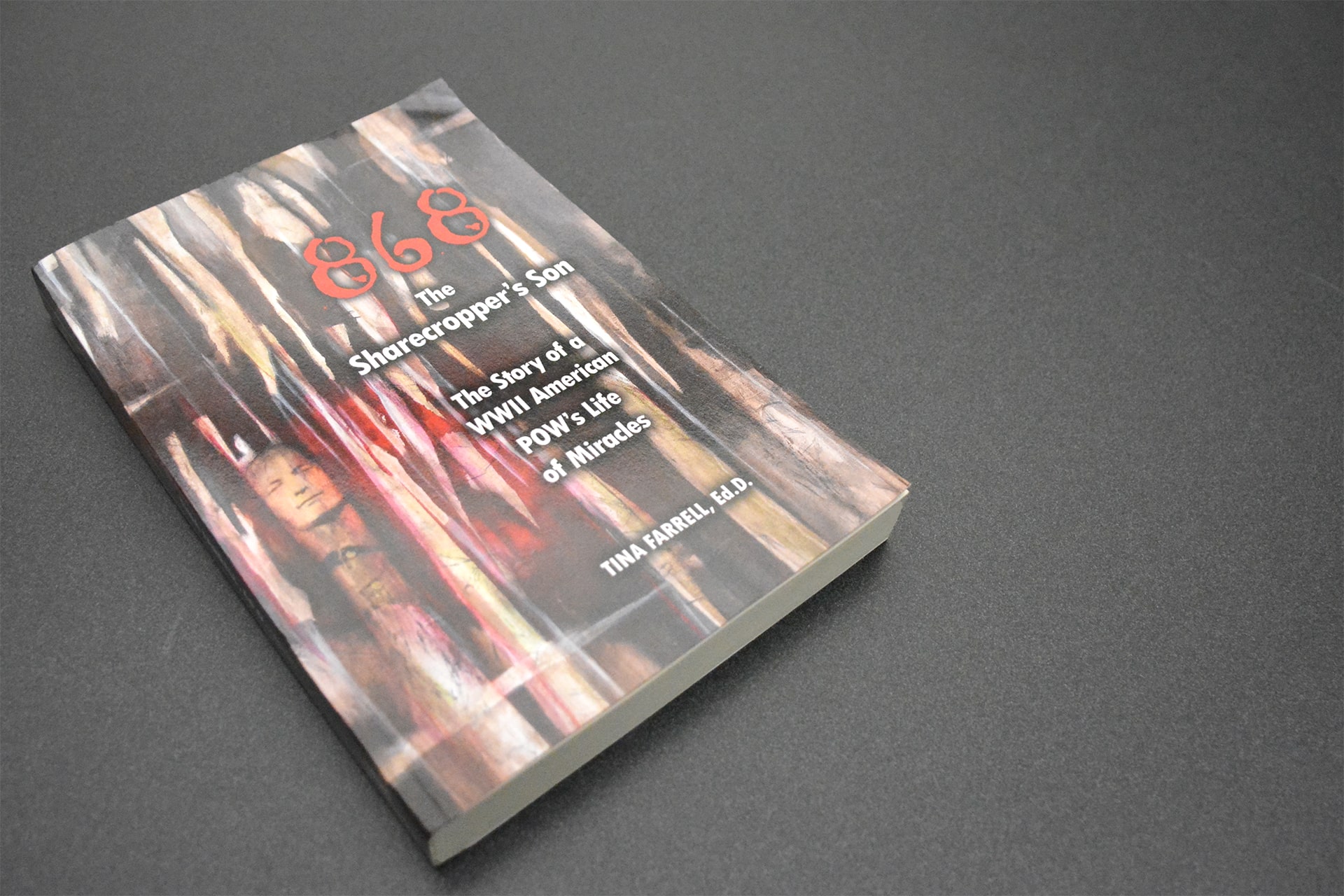
UHCL alumna shares story of father’s World War II POW experience

Houston E. Lowe’s experiences have left an impact that resonates with his family. Now, daughter and UHCL alumna Tina Farrell shares her father’s story, from humble beginnings through the 40 months of torture he endured as a prisoner of war.
“868 The Sharecropper’s Son: The Story of a WWII American POW’s Life of Miracles” details the hardships Lowe faced growing up in rural Central Texas, the lessons and discipline his father taught him, and how it would come to save his life when times were most desperate.
Starting from the day he was born, Farrell recounts 25 miracles in her father’s life including surviving spinal meningitis, tornadoes and flat-lining on a surgery table that kept him alive and shaped the man he turned out to be.
Farrell’s book goes into detail on the grueling conditions her father, among thousands of other POW’s, suffered in the Japanese “hell ships,” a term granted to the refitted civil works ships the Japanese would use for prisoner transportation.
Lowe, or Prisoner 868 as he was labeled to his captors, detailed the living situations aboard the Noto Maru, such as the minuscule daily ration of a cup of water and two handfuls of rice, as well as the sweltering 120°F temperatures below deck and cramped quarters, shared by over 1,000 other men.
Every three days, the crew would open the hatch to clear out the dead bodies below deck, throwing them overboard, inadvertently allowing more air into the cargo hold, granting the prisoners that much more of a chance to survive.
“The emperor had released a statement, called an ‘All-Kill Order,’ about one year before the war was over,” Farrell said. “He had basically said you could kill [the prisoners] for any reason, at any time, in any manner, and you could take them out one-at-a-time, or a bunch-at-a- time, but it’s your choice.”
As the nature of these ships were unknown to the U.S. at the time, Farrell also explained how allied submarines would open fire, unaware of the prisoners on board. The Noto Maru would endure two torpedo attacks in its voyage to mainland Japan, both passing just inches under the hull, audible to all on board.
Making her faith clear, Farrell states she believes someone is watching out for her father, keeping a hand on him at all times.
“He, like so many others of this generation, is a humble hero,” Farrell said in a UHCL press release, promoting her previously Nov. 5 scheduled presentation on campus. “He would never tell this story himself. He would not want to appear as if he did any more than anyone else.”
Farrell, an educational consultant for Clear Creek Independent School District, was set to hold a book-signing reading excerpts and sharing her most personal stories from the book in the Alfred R. Neumann Library. Originally scheduled for Monday, Nov. 5, the talk has since been postponed for a later date.
Fifteen percent of all sales of the book at the upcoming event will be contributed to UHCL’s Office of Veteran Services (VSO). The VSO said the money raised would go to benefit UHCL’s hospitality services for veteran students.
“The VSO will likely utilize book sales donations towards the hospitality services we provide our students,” said Natasia Pilling, program assistant of VSO. “[The office provides] tailored referral to veteran support organizations within the community, regularly scheduled Veteran’s Affairs Disability Representative visits.”
Pilling also stated that UHCL offers various campus perks, such as free parking and printing for veteran students. If students are looking to aid UHCL’s veteran services, the VSO accepts monetary and textbook donations as well.
Lowe, who turns 99 in November, is one of the older World War II veterans still living. In his long life, however, Lowe has said he regrets nothing.
“He’s just a good old country boy,” Farrell said. “He still to this day will tell you ‘I wouldn’t turn a page one way in my life any differently; I’d do it all over again.’”
